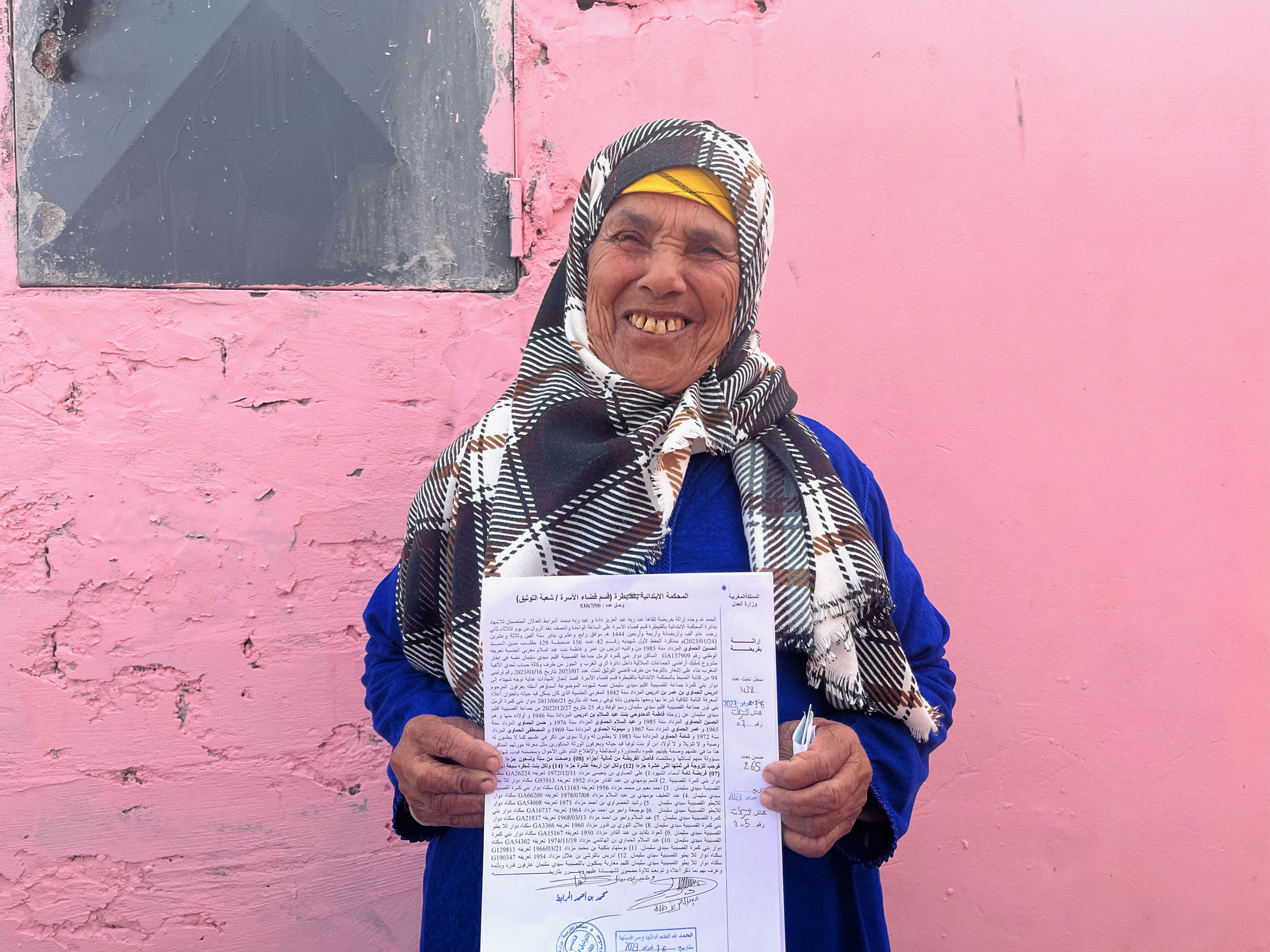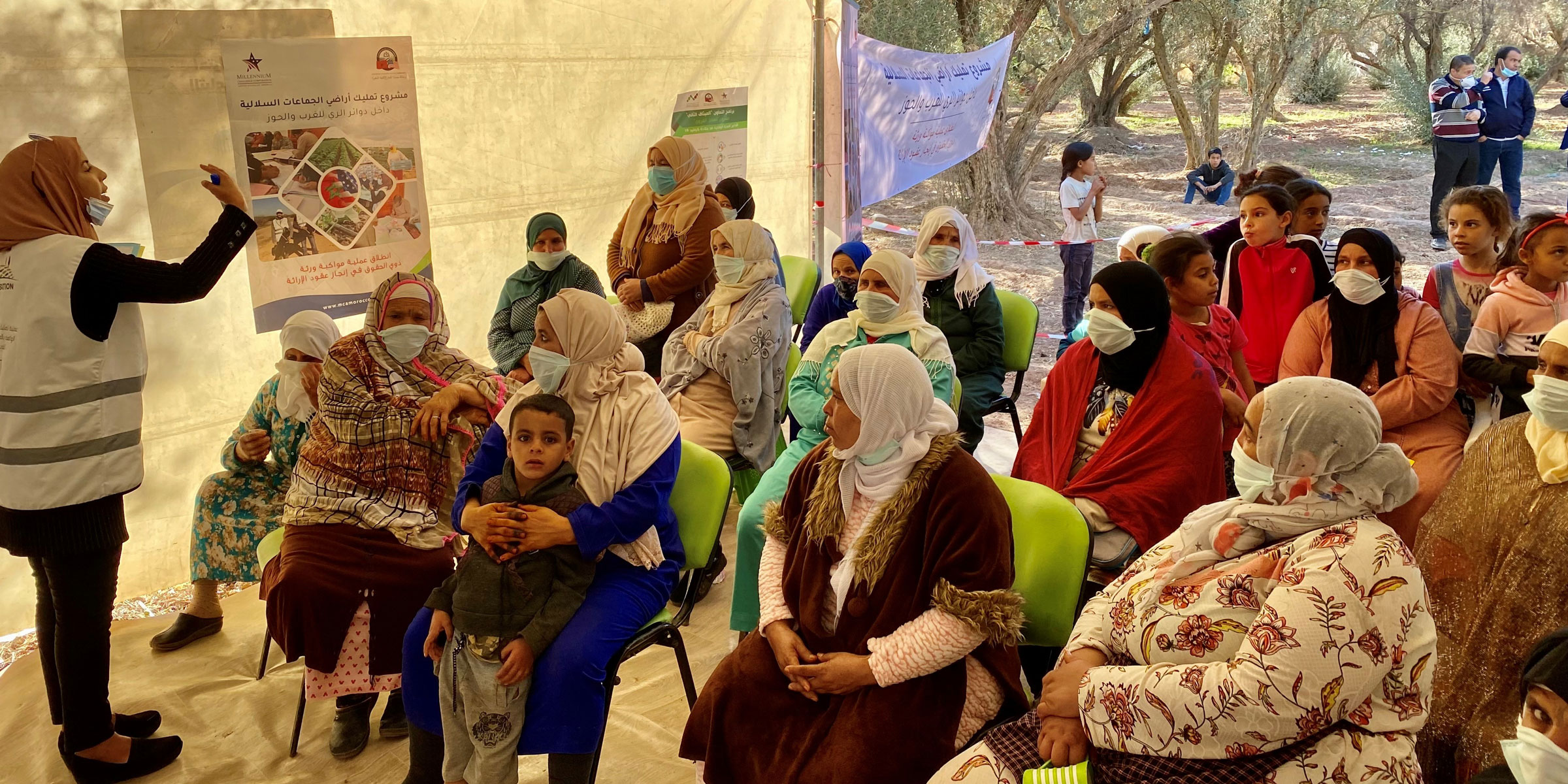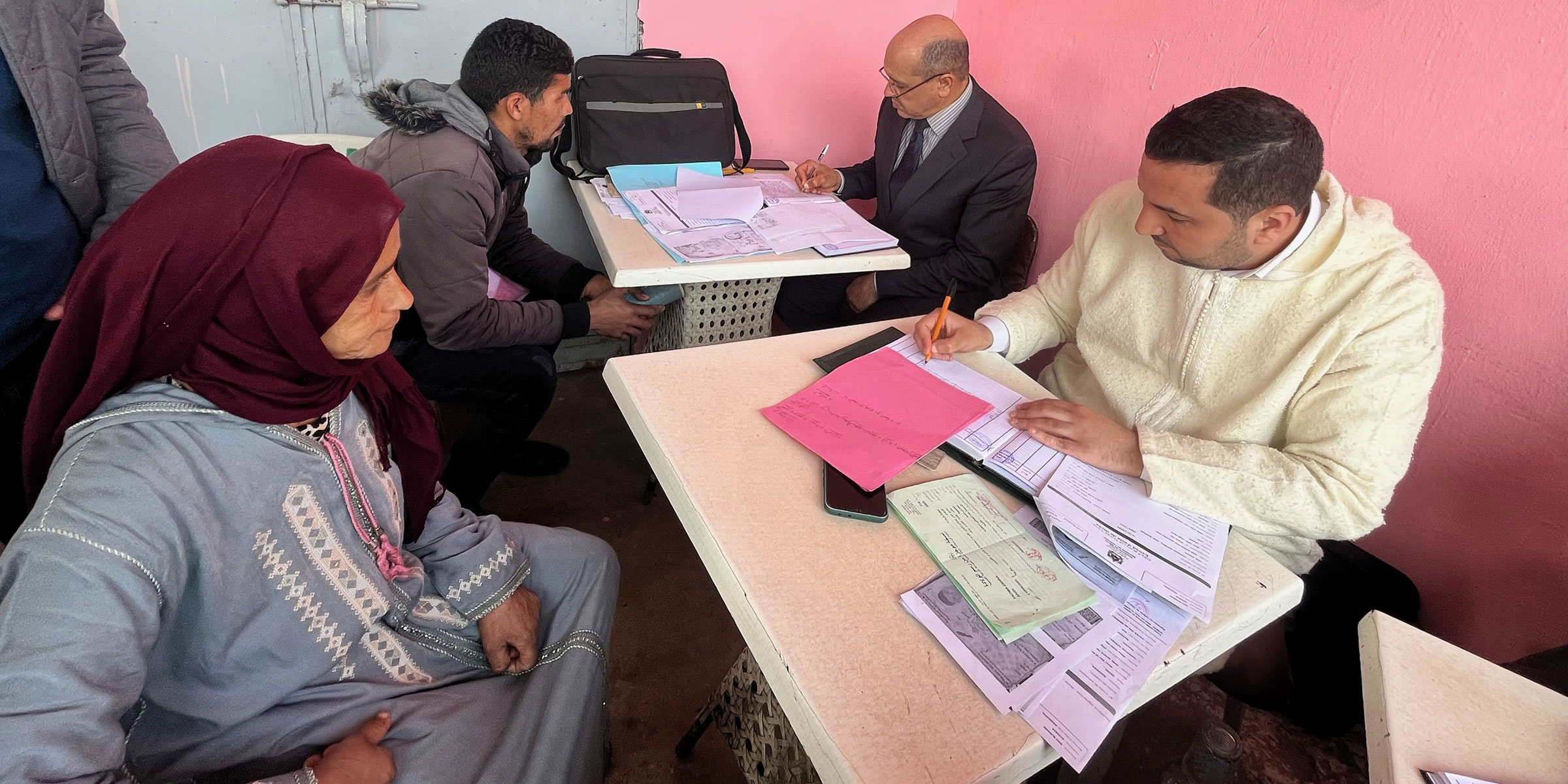
Annie Thompson, MCC
A woman in the Al Haouz province of Morocco holds up an inheritance act legally recognizing her ownership rights— along with the rights of her daughters and sons—to the parcel of farmland that would have been titled to her late husband.
For MCC’s mission of global poverty reduction to succeed, our investments must be inclusive and sustainable. MCC’s Morocco Land and Employability Compact put this important recognition into practice as part of MCC’s efforts to advance gender equality and expand the abilities of excluded groups to access, participate in, and benefit from our investments.
Land is one of the most important assets for people around the world. It’s the literal foundation on which families grow their food, build their homes, and undertake productive activities such as farming that contribute to household income.
Securing property rights for women is crucial for a country’s economic development. Studies have shown that when women have secure legal rights to land, they invest in their land to make it more productive, earn more income for their households, and are empowered as economic actors in their families and communities. Despite this evidence, many women around the world face barriers—whether legal, financial, cultural, or other—to accessing and owning land.
The MCC-Morocco Land and Employability Compact supported the Government of Morocco to privatize and title collective agricultural land and empower women as landowners.
Transitioning from collective land to private land
Land rights for women in Morocco faced particular challenges. A large share of the country’s agricultural land is classified as collective land, which is land owned by the state but belonging to designated ethnic communities. This type of land has historically been managed according to the customary practices of each collective.
Almost 60 years ago, as a policy tool intended to stimulate rural development, the Moroccan government established a procedure to formalize individual ownership of collective land located within irrigated areas, so farmers would have the legal security they needed to invest in land that they farmed—ultimately helping to increase Morocco’s domestic agricultural production.
In the decades prior to MCC’s investment, the government had already taken steps in the privatization and land titling process, including establishing official lists of rights holders within each collective. However, the procedure faced challenges and had never been fully implemented.
Additionally, the original 60-year-old policy included a provision—meant to avoid farm fragmentation—that called for a single heir to be designated in the event that the original rights holder passes away. For decades, families had difficulties agreeing on a single heir, and customary practices of the collectives meant that women were often deprived of inheritance, since they were unlikely to be designated as sole heir over male relatives.
Solidifying Legal Protections for Women’s Land Inheritance
The Moroccan government requested MCC’s support to improve the existing procedure and find ways to make it faster and more inclusive. In response, MCC and Moroccan partners developed a first-ever pilot program covering 56,000 hectares (more than 138,000 acres) to produce a model for land privatization and titling that could be scaled up to other collective, irrigated lands around the country.
MCC’s investment created a political space for dialogue that in 2019, resulted in the Government of Morocco passing legislation to eliminate the single-heir provision. This change brought inheritance rules for the privatization process into alignment with Morocco’s 2004 Family Code by applying Islamic Inheritance Law, which divides the estate among all legal heirs, including wives, daughters, and mothers. This does not guarantee an equal distribution of an asset—a female heir can receive half of what a male heir does—but it does provide legal protection for women to inherit land, rather than leaving inheritance procedures open to customary practices that can be more discriminatory.
Now, more women are guaranteed to benefit in the land titling process as heirs of deceased rights holders.

Annie Thompson, MCC
Women attend a session to promote community awareness of reforms changing land inheritance laws.
Putting Policy into Action
To accompany implementation of the land inheritance reform, the compact undertook measures on the ground, starting with raising awareness so that members of the community understood the reform, its value, and were able to advocate for women to exercise their inheritance rights.
The compact also partnered with the Moroccan Agency for the Fight Against Illiteracy (Agence National pour la Lutte Contre l’Analphabetisme) to provide functional literacy as well as legal and financial literacy training for women within the communities to better equip them to maximize the benefits of a land title.
As part of a national campaign funded by the compact, local leaders and government officials, who traditionally are often men, were trained on the recent legal reform to better prepare them to effectively enforce and protect the inheritance rights of women in the privatization process.
Finally, the compact provided legal assistance to families to navigate the administrative process so that the names of all heirs—women and men—appeared on land titles. This legal assistance included mobilizing the first graduating class of female customary notaries ever in Morocco, as this was a profession legally closed to women until recent years. Notaries play an important role in land administration services in many countries, and when women can see themselves in the formalities of the administrative process, it goes a long way in building a sense of trust in and access to land services.

Annie Thompson, MCC
A Moroccan woman receives legal support on registering to secure inheritance rights.
The results of the MCC-funded land privatization pilot delivered big gains for women. Of the 56,000 hectares of land privatized in the pilot program, 34% of title holders were women. Without the legal reforms adopted by the Moroccan government, fewer than 1% of title holders would have been women.
The impact will only continue to grow as more communities in Morocco decide to pursue this land privatization and titling process, with women’s rights as heirs now legally protected. Morocco may also serve as an inspiration for other countries in the region and beyond to tackle legal reforms necessary to ensure protection of women’s inheritance and property rights, as this should be a major dimension of any policy looking to ensure women’s inclusion in national economic growth.
Lessons for the future
The MCC – Morocco Land and Employability Compact demonstrates the important role legal reforms can play in empowering women as property owners. To reform policy, MCC has learned that we and our partner governments must deeply consider the local context to understand where it is possible to move the needle most to achieve inclusive development objectives and in a way that will be locally accepted. There is no one size fits all solution. It’s also important to think about a legal or policy reform as an important but first step and to ensure the ongoing work of its implementation, and that work is on the ground, in the communities, so that all members of the communities including men and women, wives and daughters, understand and are able to navigate to maximize the benefits of the reform.
MCC’s work in Morocco serves as a fine example of how the agency works with governments around the world to deliver legal, policy and institutional reforms that remove barriers preventing women’s equal access to economic opportunities.

